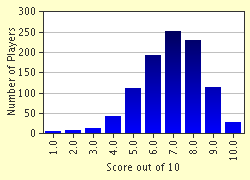Quiz Answer Key and Fun Facts
1. 'Menarche' is the medical term used to refer to a girl's first menstrual cycle. Every young girl's reaction to her first period is as individual as is each girl herself. How each will deal with this normal and natural event will depend largely on how well informed she is about menstruation. A wise mother will explain to her daughter that having a 'period' is a natural step toward becoming a woman and is something to feel good about. In developed countries, what is the 'average' age at which a girl will have her first period?
2. The length of an average menstrual cycle is 28 days, however, a 'normal' cycle can range anywhere from 23 to 35 days in length, depending on the woman. What part of the cycle is counted as day 1?
3. It takes the smooth running of many parts of a woman's body to make a menstrual cycle happen each month. The brain, pituitary gland, uterus, cervix, ovaries and Fallopian tubes all work together to make things happen. These parts are influenced by the rise and fall of female hormones at critical times in the cycle. Which of the following hormones is necessary in the production of a normal menstrual cycle?
4. During the first phase of the menstrual cycle, a woman's estrogen levels are high. This results in the lining of the uterus growing and thickening in order to nourish a developing zygote (fertilized egg) should a pregnancy take place. What hormone acts on the eggs in the ovary causing them to mature?
5. As FSH stimulates the follicles (eggs), a race begins. Usually one egg (although there can be more than one, as is the case in some multiple births,) will develop and mature quicker than the others. Suddenly there is a surge in the levels of luteinizing hormone (LH). This causes the egg to be released from the ovary. This is referred to as ovulation. In a normal 28 day cycle, on average, on what day would this take place?
6. After the egg (ovum) is released during ovulation, it makes its way via the Fallopian tube to the uterus. This is when the hormone progesterone comes into play. Its levels rise and help prepare the uterine lining for a possible pregnancy. If a pregnancy does not take place, levels of estrogen and progesterone drop and the uterine lining is shed as the woman's next menstrual cycle. What happens to the unfertilized ovum?
7. The flow of a period and the length of a period vary from woman to woman and even from month to month. Periods can be light, moderate or heavy. Most periods last from 3-5 days, but anything from 2-7 days is considered normal.
8. Which of the following would indicate a trip to your physician was in order?
9. Not all women have normal, predictable menstrual cycles. Many women encounter heavy bleeding. Some deal with intense pain. Others may stop having or skip periods. What condition does the term dysmenorrhea refer to?
10. Toxic Shock Syndrome (TSS) is a rare, but potentially fatal disease sometimes caused by the improper use of tampons. Which of the following increases your risk of developing TSS?
Source: Author
Ballykissangel
This quiz was reviewed by FunTrivia editor
crisw before going online.
Any errors found in FunTrivia content are routinely corrected through our feedback system.


